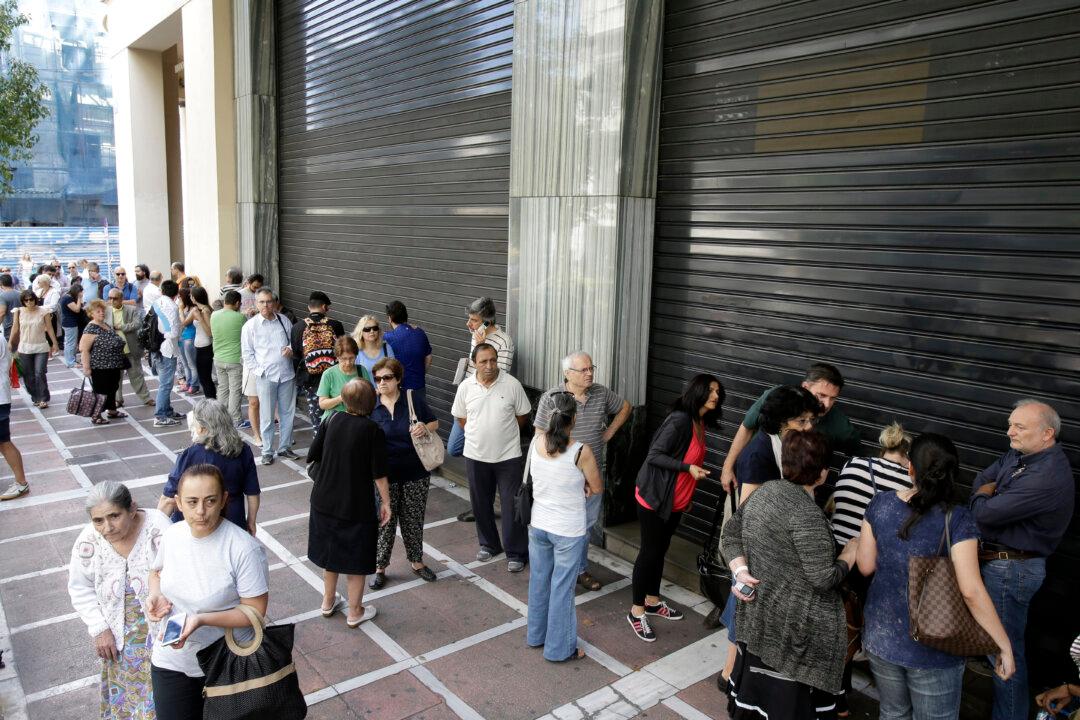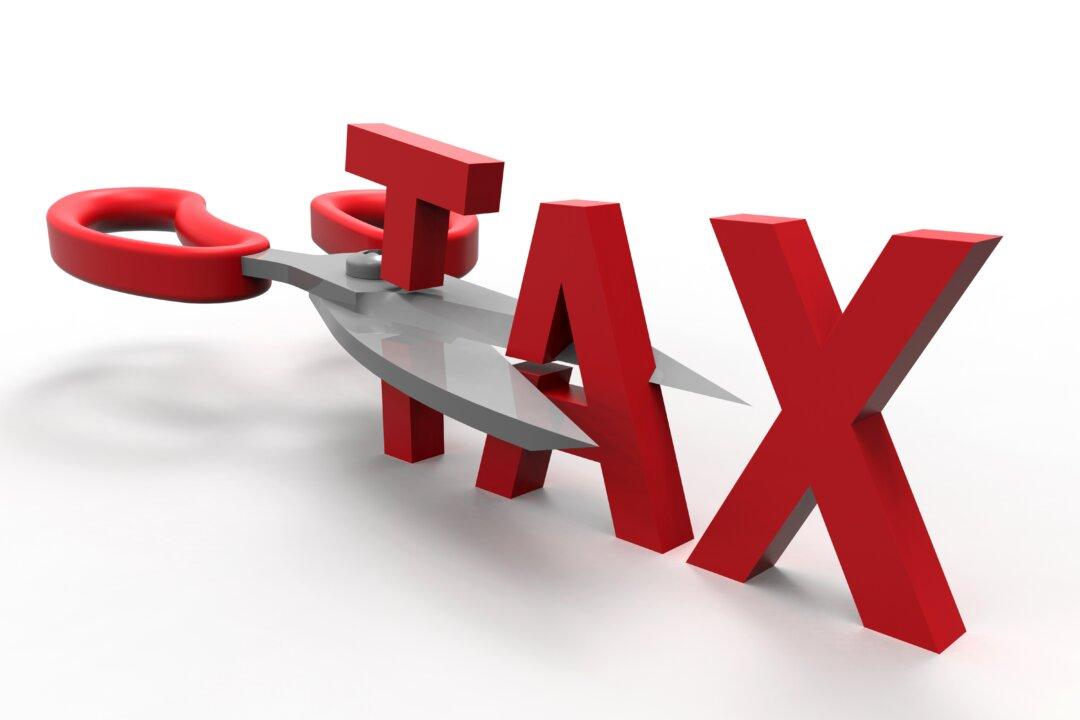BRUSSELS—Greece’s place in the euro currency bloc looked increasingly shaky on Saturday after eurozone nations rejected a month-long extension to its bailout program and the prime minister called for a risky popular vote on the country’s financial future.
Worried Greeks queued outside banks for cash amid the uncertainty, while eurozone finance ministers deciding to hold a meeting without Greece to assess how to keep the euro currency union stable in the face of heightened risks that Greece could drop out.

People stand in a queue outside a bank which operates on Saturday but eventually didn't open, in central Athens, on June 27, 2015. AP Photo/Thanassis Stavrakis





